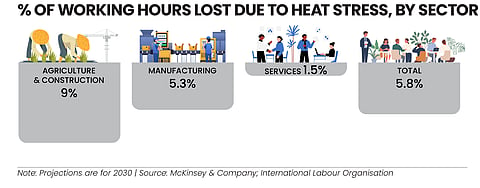With the country facing the highest impact of extreme heat globally, the India Meteorological Department (IMD) has confirmed an early onset of summer, marked by an increased frequency of heatwaves
An Era of Extreme Heat is Becoming the New Normal
A warming world has dramatically increased the probability and intensity of heatwaves. Across the country, heat stress is stealthily claiming lives, changing the way we work and the economy
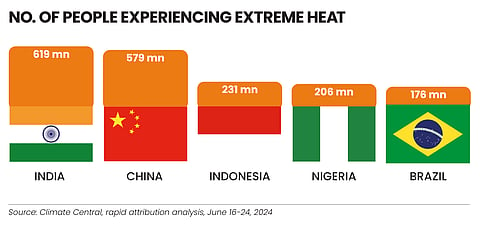
The human body requires a stable core temperature of approximately 37°C for optimal functioning. Even slight deviations can have severe physiological consequences, affecting metabolism, organ function and overall health
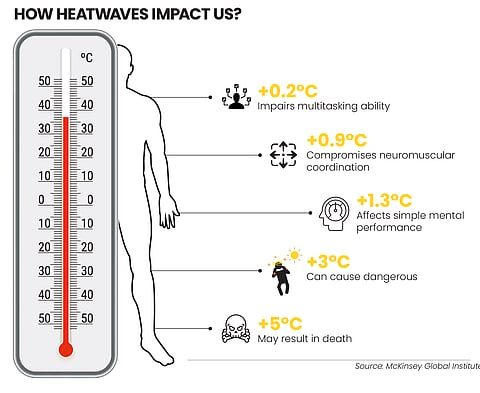
Government records show that more than 10,000 people have died due to heatwaves in the past 10 years. Actual numbers, however, may be higher as environmental triggers like heat are often not recorded on death certificates
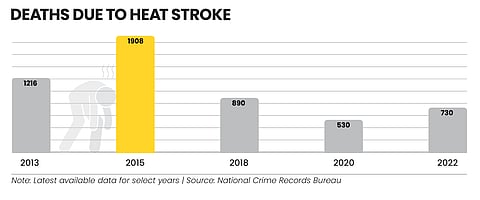
The poor often bear the brunt of extreme heat. A 2019 study of slum dwellers in Delhi found that a 1°C rise in wet-bulb temperature—an indicator that combines heat and humidity—can lead to increased risk of heat exhaustion
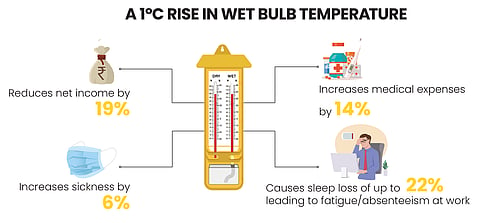
The International Labour Organisation estimates that heat stress-related productivity loss could reduce India's total working hours, translating to the loss of 34mn full-time jobs by 2030 and cost the country up to $250bn
